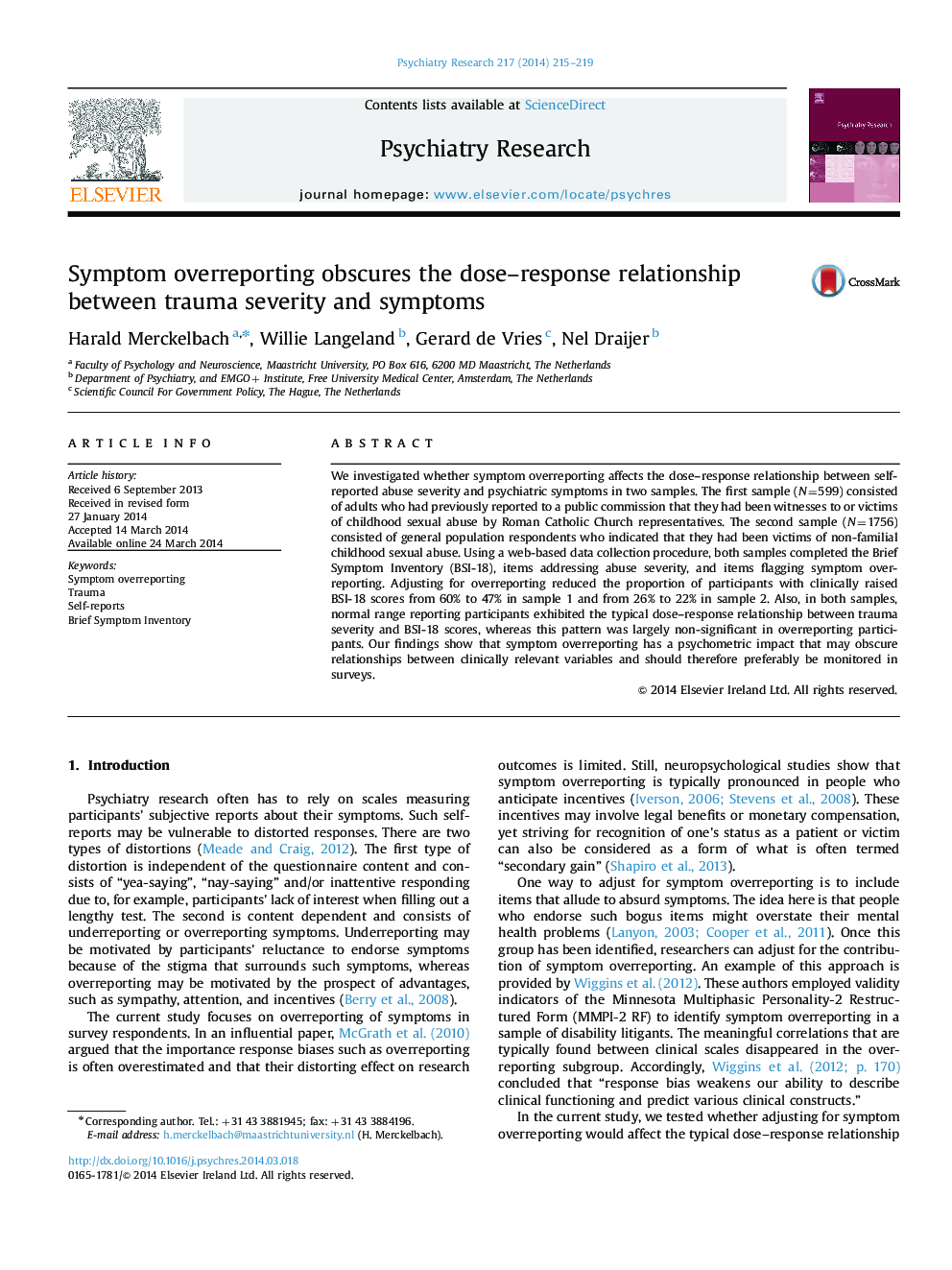| Article ID | Journal | Published Year | Pages | File Type |
|---|---|---|---|---|
| 332977 | Psychiatry Research | 2014 | 5 Pages |
We investigated whether symptom overreporting affects the dose–response relationship between self-reported abuse severity and psychiatric symptoms in two samples. The first sample (N=599) consisted of adults who had previously reported to a public commission that they had been witnesses to or victims of childhood sexual abuse by Roman Catholic Church representatives. The second sample (N=1756) consisted of general population respondents who indicated that they had been victims of non-familial childhood sexual abuse. Using a web-based data collection procedure, both samples completed the Brief Symptom Inventory (BSI-18), items addressing abuse severity, and items flagging symptom overreporting. Adjusting for overreporting reduced the proportion of participants with clinically raised BSI-18 scores from 60% to 47% in sample 1 and from 26% to 22% in sample 2. Also, in both samples, normal range reporting participants exhibited the typical dose–response relationship between trauma severity and BSI-18 scores, whereas this pattern was largely non-significant in overreporting participants. Our findings show that symptom overreporting has a psychometric impact that may obscure relationships between clinically relevant variables and should therefore preferably be monitored in surveys.
